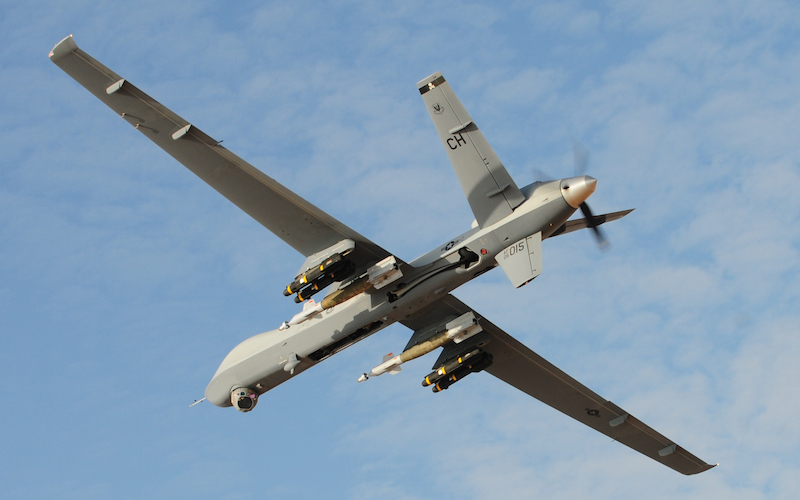
Malala and Nabeela, Two Worlds Apart
Malaya Yousafzai recently won the Nobel Peace Prize, and the world is singing her praises including news outlets like Al Jazeera, Press TV and even Fox News. However, while Ms. Yousafzai was receiving her Nobel Prize, my attention was drawn towards the case of another young girl from Pakistan: Nabeela ur-Rehman. Much like Malala, Nabeela recently travelled to the West, albeit the latter traveled to the United States with an altogether different purpose.
Who is Nabeela?
In October 2012, in North Waziristan, Pakistan, eight-year-old Nabeela ur-Rehman, her siblings, and their grandmother Momina Bibi, were preparing for the festival of Eid. A Predator drone, possibly the best symbol of U.S. foreign policy, decided that they were potential threats, and released its entire payload. In the blink of an eye, Nabeela’s world was ruined. Nabeela, along with her father and twelve-year-old brother, recently travelled to Washington DC to seek answers.
Here is what Nabeela’s father had to say: “My daughter does not have the face of a terrorist and neither did my mother. It just doesn’t make sense to me, why this happened…as a teacher, I wanted to educate Americans and let them know my children have been injured.”
Only a few members of Congress showed up to listen to Nabeela. One would have expected a larger audience. Western media did cover Nabeela’s visit and pointed out that the translator broke down in tears while recounting her story. However, as expected, the U.S. government thought it wiser to remain mute. President Obama was entertaining the CEO of Lockheed Martin at exactly the same time when Mr. Rehman and his children were appearing on Capitol Hill.
Nabeela isn’t Malala
Malala Yousafzai was nearly assassinated by the Taliban. Western media covered the story extensively. However, instead of actually applauding the girl for her heroism, advocates viewed Malala Yousafzai as a potential tool of political propaganda. They promoted Malala as a victim — someone who needed to be saved. As a result, by using Malala’s example, hawks could justify their acts and showcase the Predator drones as symbols of liberty. Remember that slogan? Drones kill so Malala can live!
This is exactly why the propagandists decided to ignore the truth. Max Fisher, writing for The Washington Post, described the situation: “Western fawning over Malala has become less about her efforts to improve conditions for girls in Pakistan, or certainly about the struggles of millions of girls in Pakistan, and more about our own desire to make ourselves feel warm and fuzzy with a celebrity and an easy message. It’s a way of letting ourselves off the hook, convincing ourselves that it’s simple matter of good guys vs. bad guys, that we’re on the right side and that everything is okay.”
And what about Nabeela Rahman? Well, her case shows the other side of the picture: the dismal truth behind drone strikes. She cannot be given the same sympathy that is showered upon Malala. In a war, one’s own victims need to be ignored, whereas the enemy’s victims need to be highlighted. Therefore, as unfair as it might sound, Nabeela will not be getting a prize, nor will there be an audience when she speaks, and of course, there will be no celebrities eager to share the stage with her. Malala, on the other hand, will continue to be seen as the de facto poster child, and her story will be told countless times, simply to justify NATO’s outings in Asia.
Whilst the rest of the world was swooning over the words of Ms. Yousafzai, I was listening to the testimony of a ten-year-old girl, who lost her happiness due to no fault of her own: “When I hear that they are going after people who have done wrong to America, then what have I done wrong to them? What did my grandmother do wrong to them? I didn’t do anything wrong.”

